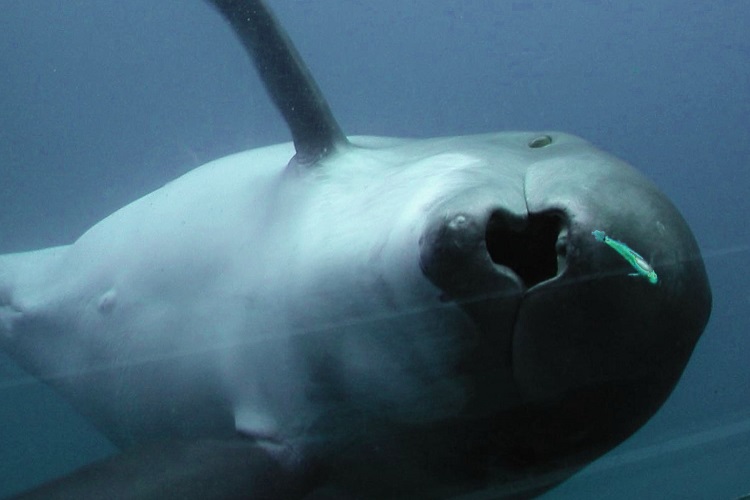Whales react in the blink of an eye

Whales have reaction times as fast as humans, according to new research led by the University of St Andrews and a team of international researchers.
By rapidly adjusting their echolocation behaviour, toothed whales can track fast and unpredictable prey with response times similar to human vision.
The paper, published in eLife today, offers new insights into how these animals hunt and may aid efforts to protect them in the wild.
Heather Vance, postgraduate student at the Sea Mammal Research Unit (SMRU) at the University of St Andrews, said: “Visual animals must respond quickly to sudden movements of their prey to catch them or to flee their own predators.
“For example, primates’ vision allows them to respond to sudden movements in as little as 50 milliseconds – less than the blink of an eye.
“We found the echolocation response speeds of the whales were similar to visual responses in monkeys and humans, suggesting that their brains may be wired for speed in much the same way as visual animals.”
The study examined whether echolocators have a way to lock onto prey movements, like visual animals do, when they close in for the kill as well as how quickly they can react to prey movements.
Sound and movement loggers were attached with suction cups to six wild harbour porpoises, which hunt in shallow waters off Denmark, and eight Blainville’s beaked whales, deep-diving animals which live off the Canary Islands.
Data on both the echolocation clicks emitted by the whales and the echoes that help them track their prey were then analysed.
Both types of whale respond to sudden changes in the position of their prey in as little as 50 to 200 milliseconds by adapting their clicking rate, emitting as many as 500 clicks per second while in pursuit.
The researchers hope that knowing more about how echolocation works will help other scientists better understand how it evolved, and how noise from ships and other human activity may interfere with the ability of whales to hunt, with implications for their survival.
Co-author Professor Sascha Hooker, of the School of Biology at the University of St Andrews, said: “Ocean sound is one of the most pressing current conservation issues facing marine mammals worldwide.”
Senior author Mark Johnson, Associate Professor at the Aarhus Institute of Advanced Studies, Aarhus University, Denmark, said: “Knowing what conditions allow these animals to thrive will make conservation efforts all the more effective.”
The paper ‘Echolocating toothed whales use ultra-fast echo-kinetic responses to track evasive prey’ is published in eLife and is available online.
Please ensure that the paper’s DOI (doi.org/10.7554/eLife.68825) is included in all online stories and social media posts and that eLife is credited as the source.
Issued by the University of St Andrews Communications Office.